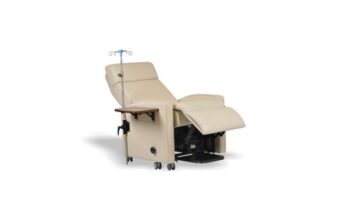For individuals with end-stage liver disease or acute liver failure, a liver transplant becomes a life-saving solution. The success of such a complex procedure hinges on selecting the best liver transplant hospital equipped with advanced technologies and multidisciplinary expertise.
This article explores the critical aspects of liver transplants, the importance of specialised care, and why choosing a top hospital in Delhi is essential for optimal outcomes.
Specialised Care: A Lifeline for Severe Liver Diseases
Specialised care is not just about advanced technologies and medical protocols; it’s about giving patients a second chance at life. By leveraging comprehensive diagnostics, personalised treatments, and unmatched transplant expertise, specialised hospitals offer a holistic approach to battling severe liver disease.
Why Seek Specialised Care for Severe Liver Disease?
For severe liver disease, time and expertise are critical in determining the prognosis and ensuring effective treatment. Specialised hospitals offer quality resources, expert care, and advanced technology to provide patients with the best chances of recovery and survival. Here’s how they excel in managing severe liver conditions:
1. Comprehensive Diagnostics: Advanced Imaging and Lab Facilities for Accurate Disease Staging
Accurate diagnosis is the foundation of effective treatment for severe liver disease. Specialised hospitals are equipped with:
- Advanced Imaging Technologies: These include high-resolution ultrasound, CT scans, and MRI with liver-specific contrast agents. Such tools help in assessing the liver size, and blood flow, and detecting tumours or fibrosis with precision.
- Elastography (Fibroscan): A non-invasive technology used to measure liver stiffness, crucial for determining the extent of fibrosis or cirrhosis without requiring a biopsy.
- Liver Function Tests (LFTs): Comprehensive blood panels that measure bilirubin levels, liver enzymes (ALT, AST), and albumin to evaluate the liver’s capacity to function.
- Biopsy and Histopathological Analysis: When imaging isn’t sufficient, specialised hospitals perform liver biopsies, providing microscopic insights into liver damage, fibrosis, or cancer.
- Multidisciplinary Review: Results from diagnostics are reviewed by teams comprising hepatologists, radiologists, and pathologists, ensuring a holistic and accurate diagnosis for the precise staging of the disease.
This meticulous diagnostic approach enables specialised hospitals to differentiate between manageable conditions and those requiring urgent intervention like a transplant.
2. Tailored Treatments: Individualized Care Plans Beyond Standard Protocols
Severe liver disease often involves a complex interplay of symptoms, comorbidities, and underlying causes. Top hospitals excel at creating personalised care plans that address these intricacies.
Comprehensive Assessment of the Patient’s Condition: Specialists assess not only the liver disease but also other factors like age, nutritional status, immune function, and any existing medical conditions such as diabetes or cardiovascular disease. This comprehensive evaluation ensures a tailored approach to treatment.
Custom Therapeutic Approaches:
- For advanced cirrhosis, treatment may include minimally invasive procedures like Transjugular Intrahepatic Portosystemic Shunt (TIPS) to manage complications such as portal hypertension.
- In acute liver failure, interventions focus on managing encephalopathy, stabilizing metabolic derangements, and preparing the patient for emergency transplantation if needed.
- Patients with liver cancer may benefit from targeted therapies like radiofrequency ablation (RFA), chemoembolization, or liver resection as bridging therapies before transplantation.
Nutritional and Lifestyle Support: Specialised hospitals emphasise dietary adjustments, tailored to the patient’s condition, such as low-sodium diets for ascites or high-protein intake for hepatic encephalopathy. Nutritional counsellors work closely with patients to support their recovery.
Psychosocial Support: Tailored treatments also consider the patient’s emotional and psychological well-being, offering mental health support to help cope with the challenges of severe liver disease. This individualised care model goes beyond standard protocols, ensuring that every patient receives treatments optimised for their unique needs and condition severity.
3. Liver Transplant Expertise: The Only Definitive Treatment for End-Stage Liver Disease
When severe liver disease progresses to the point where the organ can no longer function, a liver transplant becomes the only viable option. Leading hospitals like BLK-Max Super Speciality Hospital are renowned for their expertise in this life-saving procedure, offering:
Comprehensive Transplant Programs: These programs are designed to evaluate and prepare patients meticulously, including matching with the most suitable donor, whether through cadaveric donation, living donors, or split-liver transplantation.
Advanced Surgical Techniques: Surgeons in specialised hospitals are highly skilled in complex procedures such as:
- Orthotopic liver transplantation, where the diseased liver is entirely replaced with a healthy one.
- Split-liver transplants, allow one donor liver to be used for two recipients, increasing the availability of organs.
- Living-donor liver transplants involve precision surgery to remove a portion of a healthy donor’s liver and transplant it into the patient.
Operative and Post-Operative Facilities: The surgical suites are equipped with tools to ensure precision, reduce infection risks, and enhance patient safety. Post-operatively, patients receive care in transplant-specific ICUs, where dedicated teams monitor for complications like graft rejection, infections, and bleeding.
Long-Term Follow-Up: Liver transplant recipients require lifelong monitoring to prevent rejection and manage immunosuppressive therapies. Specialised hospitals provide structured follow-up programs, including regular check-ups, medication adjustments, and counselling to ensure long-term transplant success.
Know more about : Care After Successful Liver Transplant Surgery and Precautions
Conclusion
Severe liver disease requires immediate, specialised intervention. Choosing the best liver transplant hospital like BLK-Max Super Speciality Hospital ensures access to world-class expertise, advanced medical technology, and a multidisciplinary approach essential for successful outcomes. From pre-transplant care to post-operative monitoring, these hospitals provide the best chance for recovery and long-term health. For individuals battling severe liver disease, consulting a specialised hospital is not just a recommendation. It is a necessity for survival.




